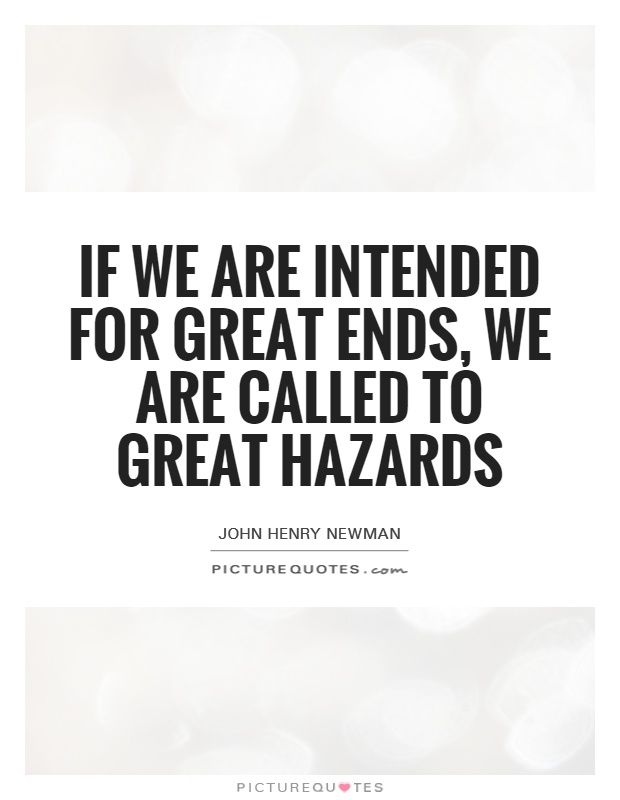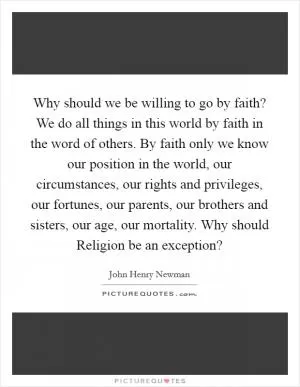If we are intended for great ends, we are called to great hazards

If we are intended for great ends, we are called to great hazards
John Henry Newman, a prominent figure in the 19th-century religious landscape, was a firm believer in the idea that individuals are called to great hazards if they are intended for great ends. This concept is deeply rooted in Newman's understanding of the human experience and the role of faith in guiding one's path towards fulfilling their ultimate purpose.Newman's life and work exemplify this belief in a profound way. As a theologian, philosopher, and cardinal in the Roman Catholic Church, Newman faced numerous challenges and obstacles throughout his career. From his controversial conversion to Catholicism from Anglicanism to his struggles with the hierarchy of the Church, Newman's journey was marked by great risks and uncertainties. However, he remained steadfast in his convictions and continued to pursue his calling despite the dangers that lay ahead.
One of Newman's most famous works, "The Idea of a University," reflects his belief in the importance of intellectual and spiritual growth in achieving one's full potential. In this seminal text, Newman argues that education should not only focus on the acquisition of knowledge but also on the development of character and moral virtue. He believed that individuals are called to great hazards in the pursuit of truth and wisdom, and that it is through facing these challenges that one can truly fulfill their destiny.
Newman's own life serves as a testament to the idea that great ends are often accompanied by great risks. His willingness to confront the uncertainties and dangers of his time, whether in the realm of theology or academia, demonstrates his unwavering commitment to his beliefs and his calling. Despite the obstacles he faced, Newman remained resolute in his pursuit of truth and righteousness, inspiring countless others to do the same.












 Friendship Quotes
Friendship Quotes Love Quotes
Love Quotes Life Quotes
Life Quotes Funny Quotes
Funny Quotes Motivational Quotes
Motivational Quotes Inspirational Quotes
Inspirational Quotes